EuroGOOS History Infographic (2023)Discover the history of EuroGOOS in this infographic launched at the 10th EuroGOOS International Conference (October 2023) and used to develop the History Brochure, also available on this page. |
1.93 MB |
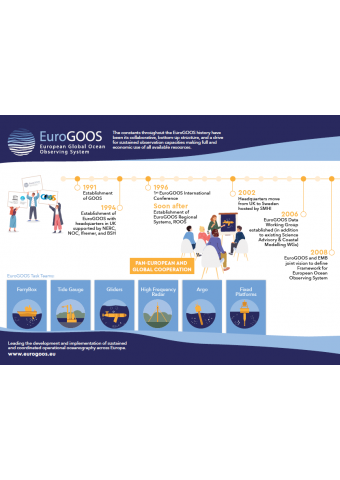
|
The History of EuroGOOS (2023)EuroGOOS, the European component of the Global Ocean Observing System (GOOS), was established in 1994. GOOS provides a framework for worldwide ocean observation - continuous real or near real-time data on the present state of the ocean, forecasts, and long-term historical series. GOOS and EuroGOOS serve a wide and varied user base across public bodies, research institutions, and industry. Discover the history of EuroGOOS in this brochure launched for the occasion of the 10th EuroGOOS International Conference (October 2023). |
1.93 MB |
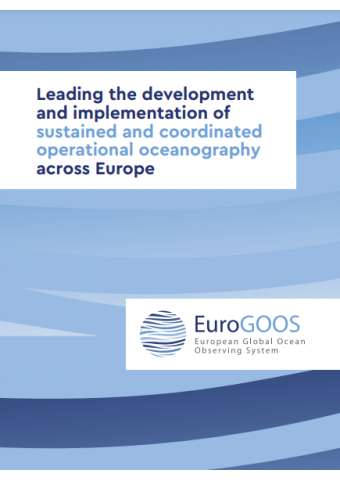
|
Ocean Observing and Ocean Literacy (2019)This EuroGOOS poster presented at the OceanObs'19 Conference explains why ocean observing and ocean literacy are a win-win deal and what EuroGOOS is working on in this respect |
3.57 MB |
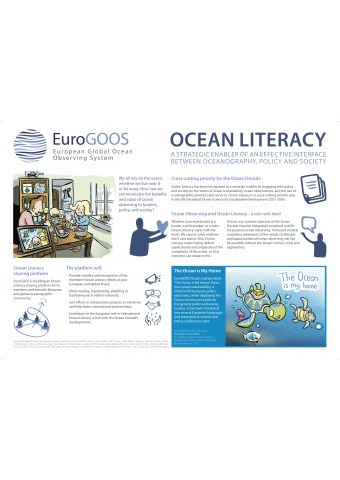
|
EuroGOOS Flyer (2015)Observing Ocean Change (released on the occasion of COP21, updated in 2017) |
232.29 KB |
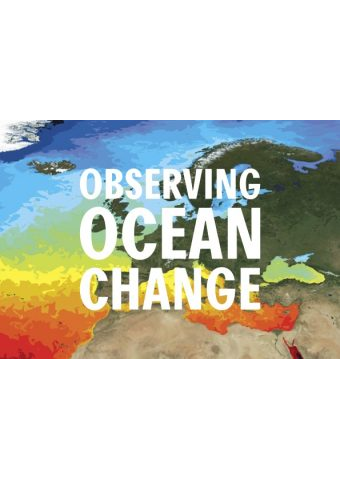
|
The Ocean Is My HomeWhat most people know about the ocean’s ecosystem and economic services, and the importance of ocean data and information to maintain and advance those services, varies greatly. This book is written for children and their parents as a basis for dialogue between them, ultimately for better decisions related to ocean health and sustainability. To access translated versions please click the links below: French | Spanish | Italian | Portuguese | Romanian | Bulgarian |
22.66 MB |
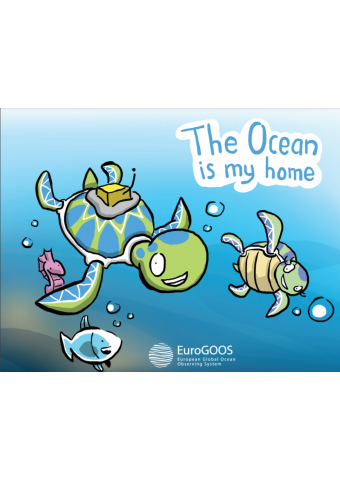
|
EuroGOOS Brochure (2017)What, Why and How of EuroGOOS are presented in brief descriptions and infographics. Discover why EuroGOOS is a unique forum for operational oceanography and how we work and partner within Europe and the world. |
1.24 MB |
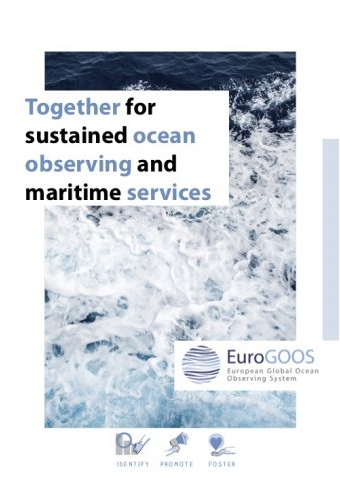
|
Copernicus Marine Service and In Situ ObservationsEuropean in situ ocean observing as feeding the European ocean data aggregators Copernicus Marine Environment Monitoring Services, EMODnet, and SeaDataNet. We delivered this infographic in September 2017 for CMEMS, within our project with Mercator Ocean International. |
231.51 KB |
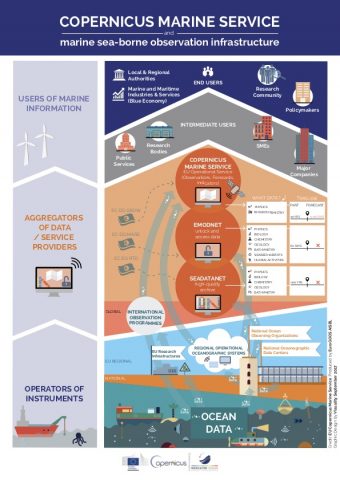
|
EuroGOOS 2017 Conference PrioritiesEvery three years EuroGOOS brings together a broad range of implementers and users of oceanographic services. The conference reviews the present ocean monitoring and forecasting capacities and oceanographic services and identifies new science and technology priorities. |
124.62 KB |
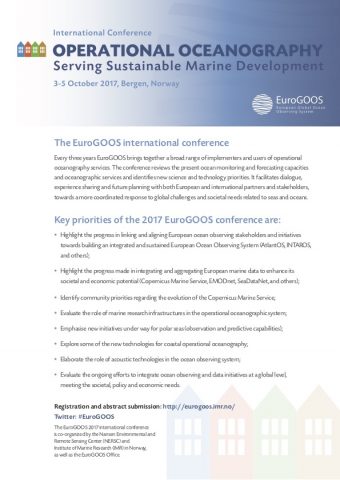
|
EuroGOOS Kostas Nittis Medal FlyerThe Kostas Nittis medal is accompanied by a grant and awarded to a young marine professional within the operational oceanography and broader ocean observing community |
305.36 KB |
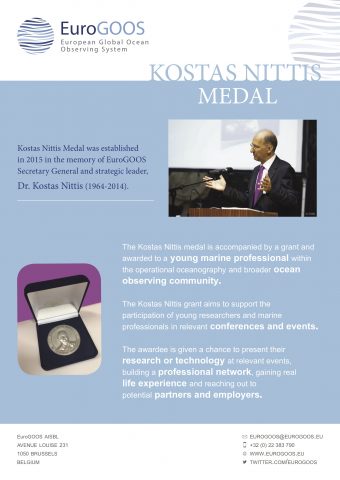
|
Arctic GOOS Flyer (2016)Prepared by GOOS Project Office, IOC-UNESCO and EuroGOOS |
377.85 KB |
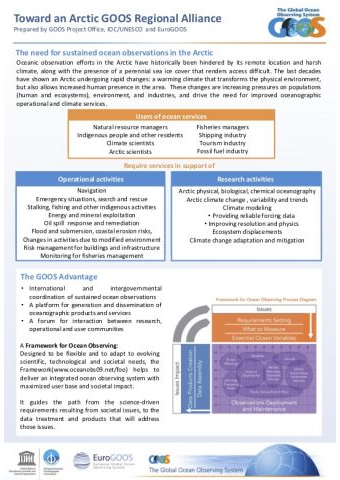
|
EOOS Flyer (2016)Aligning, integrating and promoting Europe's ocean observing capacity |
124.58 KB |
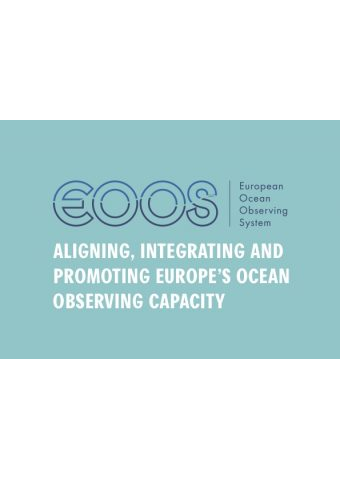
|
EuroGOOS The Benefits of Membership (2015)EuroGOOS operates as both national, regional and international levels, offering its members a unique forum for collaboration, networking and new opportunities. This brochure explains member benefits at all those levels. |
293.30 KB |
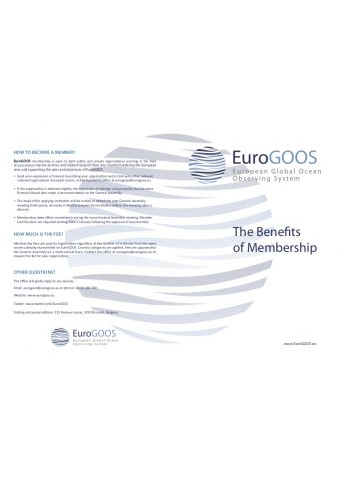
|















































